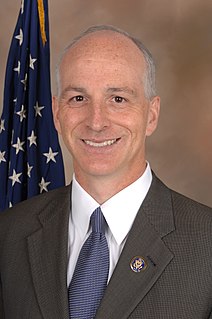A Quote by Katie Pavlich
Cartels south of the border actually have a lot in common with ISIS. In fact, ISIS could learn a thing or two from their gruesome tactics. The biggest differences between the two are motive and religion.
Related Quotes
It is important to understand that there are two separate battles taking place in Iraq: there is the political rift between the Sunnis, Shia and the Kurds and there is a foreign extremist group - ISIS - trying to take advantage of the political environment through violence. If the Iraqis can resolve their political differences, it will be far more difficult for ISIS to thrive. Moving forward, we should continue to evaluate additional steps to help combat ISIS as we see what the Iraqis are willing to do politically, but we must also firmly guard against mission creep.
ISIS is not Islam. No, I'm not saying that. The government says that. The left, the media says it. ISIS is not Islam. You've heard Obama say that. ISIS is making a mockery of Islam. In fact, what you really need to understand about the way our government looks at Islam, they look at Islam as anti-terror as well. Islam is anti-terrorism. Therefore, no terrorism can actually be Islamic.
We saw that, as Syrian troops went to Aleppo, ISIS took Palmyra. But ISIS' days are numbered. The Donald Trump administration has said that they're going to concentrate on ISIS and they're going to work with Russia. Now, we don't know whether they really will work with Russia or not, but it's clear that ISIS is going to be pounded.
I think that all countries of the region should join their efforts in the fight against a common threat - terrorism in general and ISIS in particular. It concerns Iran as well, it concerns Saudi Arabia (although the two countries do not get along very well, ISIS threatens both of them), it concerns Jordan, it concerns Turkey (in spite of certain problems regarding the Kurdish issue), and, in my opinion, everybody is interested in resolving the situation. Our task is to join these efforts to fight against a common enemy.































